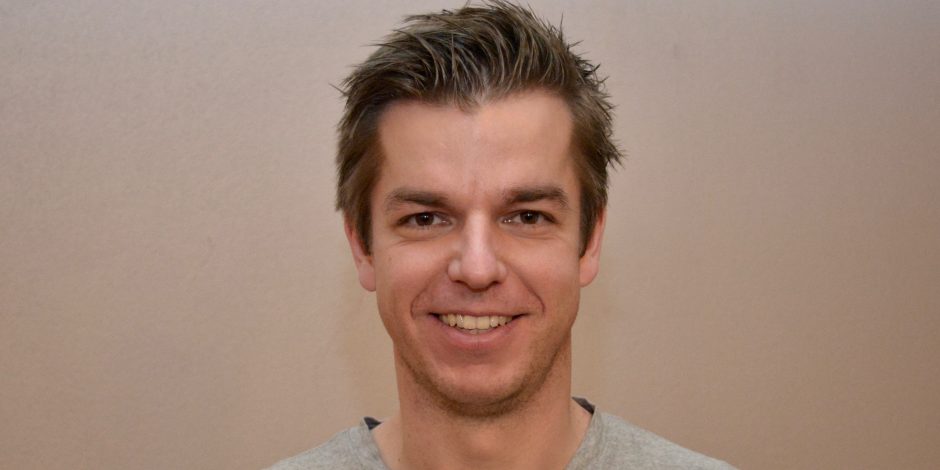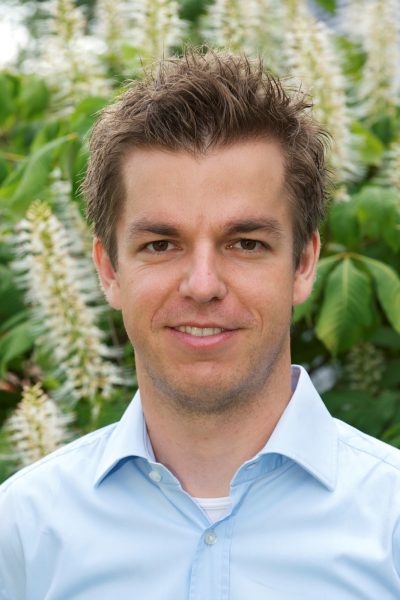Entering another world

“As an astrophysicist you have a lot of abilities and skills that are very important in and transferable to the professional world outside of science,” says Sascha Quanz who has worked as management consultant at McKinsey & Company before returning to astrophysics. He is now lecturer at the ETH Zürich and leader of the PlanetS subproject “Detection and Characterization of Exoplanets.” His advice to PhD students and postdocs: “Be aware that some of what you are doing in scientific research is also relevant for a career in industry.”

Sascha Quanz, ETH Zürich.
PlanetS: You studied physics in Heidelberg and got your PhD in astronomy at the Max Planck Institute for Astronomy in Germany “summa cum laude”. But then you left the science community and joined McKinsey as a management consultant. Why?
Sascha Quanz: During my studies I had already worked at McKinsey’s as a trainee for three months. It was very exciting and I was considering accepting their job offer but then decided to start with a PhD thesis. During my PhD it became clear to me that I would switch from science to industry because what McKinsey offered was completely complementary to what I did before. I was able to enter another world – an experience that I didn’t want to miss. I met people who functioned differently. They were interested in other topics and motivated by other goals, but always behaved very professionally.
What was the most fascinating part of your job?
As a management consultant you are working on a project for three to five months. Then, you switch to a completely new field. Therefore, in a short time you get to know a lot of different sectors of industry, for instance healthcare, car industry, high-tech. And you can also look at different departments like marketing, finance, operations. For me this was very exciting and challenging.
Why did you go back to science?
I liked my job at McKinsey’s a lot and would do the same again. But in the consulting business working 80 hours a week is normal, which means that there is almost no time for private life. In addition, I hoped to be able to advise aerospace companies since I have always been a space enthusiast. But it turned out that only very few companies in that sector rely on consulting. So, after a bit less than 2 years at McKinsey, I started looking for a new challenge and this happened to be the job at ETH Zürich.
You were talking of two separate worlds. What is different in academia and industry?
Considering time as a resource is much less common in academia especially among the younger colleagues. To give an example, sometimes there are meetings without a specific goal or even an agenda. Also, some colleagues don’t stick to deadlines or agreements and a lot of people are overcommitted. That is to some extent part of the culture and also part of the freedom that we scientists enjoy, but in big projects with many people involved it can be annoying and leads to a lot of inefficiencies. In industry you also pick up the phone more often instead of sending lengthy emails back and forth. Talking to each other is much more efficient.
So science could learn from industry.
Of course, you can’t appoint a consultant team and revolutionize academic life. That wouldn’t work. Good science needs time and freedom. But the time management could be improved a lot in science – and also the project management. In many science projects the managers focus on filling in a big excel-sheet keeping track of the expenses and todos. But real project management has nothing to do with excel-sheets but with prioritizing, decision making and leadership to ensure that money and other resources are spent wisely to reach a clearly defined goal.
What is your advice to young colleagues concerning their career development?
If you start working as PhD student or postdoc you should be aware that what you are doing is also relevant for a career in industry. “Big data” is a trendy keyword. A lot of companies are looking for people who know how to handle large data volumes. But there is much more. In science you learn how to solve complex problems by breaking them down into sub-problems and putting the results together in a synthesis. These analytical tools but also to be used to working in international groups can be very valuable.
So astrophysicists really are a useful species?
I think so, although we once discussed how long it would take to realise it if all astrophysicists went on strike – probably a few weeks if you don’t consider the lectures. Of course, we can’t tell a bank, an insurance company, a consulting firm or a start-up with a new internet platform why it is so fascinating to look through a telescope. But as an astrophysicist you have a lot of abilities and skills that are very important in and transferable to the professional world outside of science. And the companies are aware of how good the physics education is, especially at Swiss universities. I know quite a number of physicists who made the change from science to industry. Within a relatively short time they were invited to job interviews and got interesting offers.
How could professors and supervisors help their students and postdocs to make the transition into industry?
They should be open to discussions and actively support efforts to gather information about job opportunities outside the academic world. I supervise a master student who is now working in a bank for three months – a good opportunity to experience a normal workday. I think such an effort is also very helpful to find out what are the topics that you are really interested in. To start with a PhD is a decision that should be carefully considered. It means to invest three to four precious years that will never come back – a time when you are still young and free. And everybody should be aware: It is not a failure if you don’t pursue an academic career. To observe stars and planets is fun and a huge privilege but there are a lot of other exciting things to do out there.

